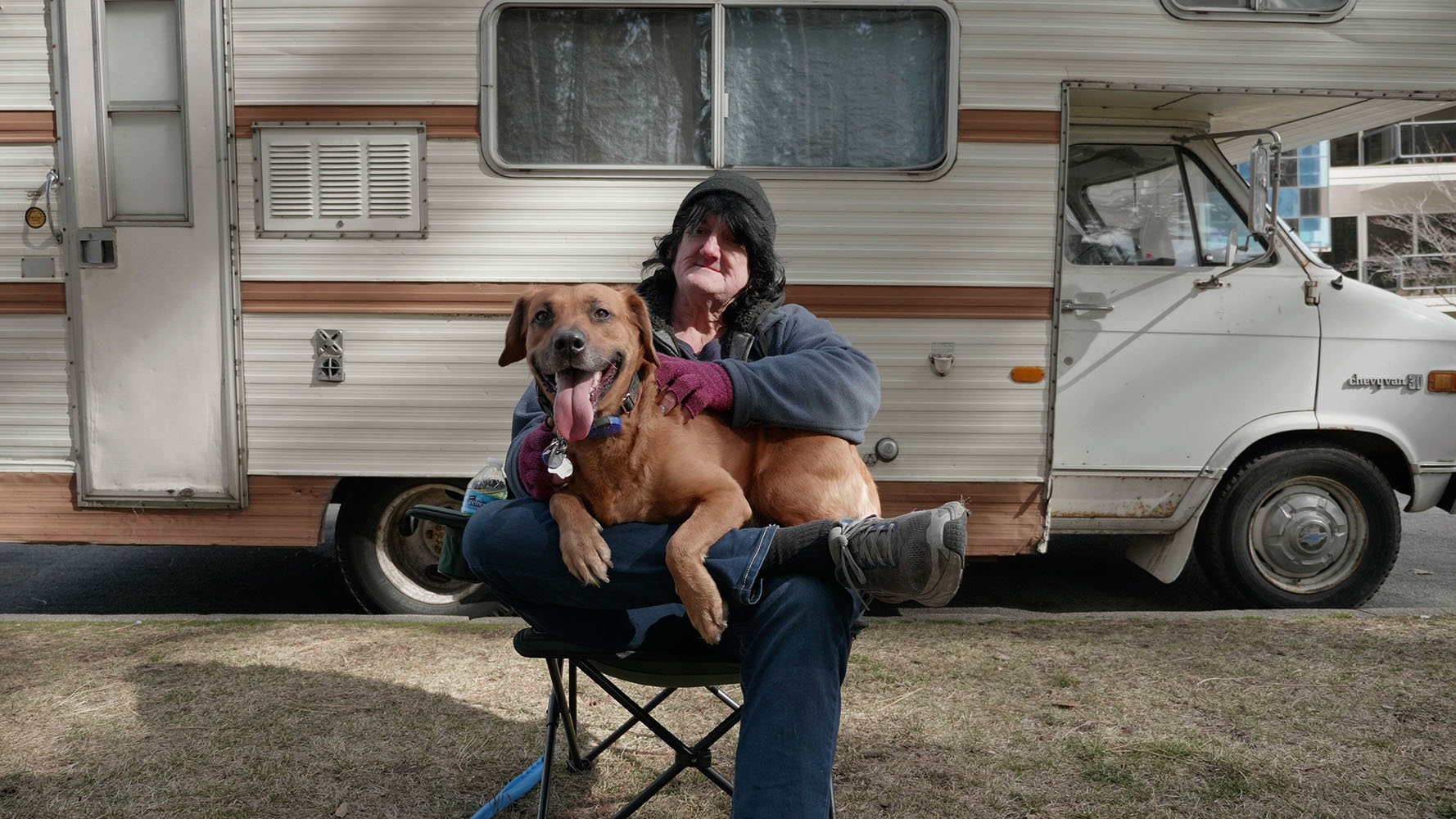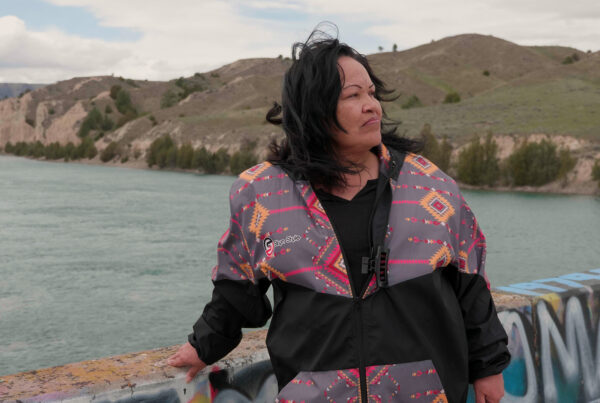Video Transcript
Byron is one of my longer term cases that I bailed out through The Bail Project. And I love Byron and his dog Blade. Here it is Sunday afternoon and I’m certainly not working, but Byron needed a jump start and some help with gas, so I came out to help.
I’m a retired Marine, transgender, living here in Spokane, Washington pretty much homeless living in my motor home behind me. My dad was a Marine. My mom was a nurse. He moved all over the place so we followed. We went to Northern Ireland when I was very young. The violence was just overwhelming. I saw my first dead body before I was six years old and I saw a person die in my mom’s arms before I was seven. At first I didn’t think it really had much impact on me, but now I do know that it was a tremendous impact on me – me getting in a lot of trouble.
I have petit mal seizures, and then me being homeless and living on the street my cell phone gets periodically gets taken from me, I that some people steal it – you fall asleep in the wrong place or something like that. So I was missing a lot of court dates, so I would have uh warrants for my arrest for you know minor things, you know traffic violations and things like that. They kept me for like eight days. I couldn’t bail out on a $1500 bond. My dog was taken to SCRAPS. I almost lost her. She’s my service dog because of my seizures.
The county uh public defender said, “Why aren’t you with The Bail Project?” And she was the one that contacted Sabrina. They got together and they called SCRAPS and told them, “Don’t adopt this guy’s dog out because he’s gonna flip out if he loses his dog.” Bailed me out of jail and, they arrested me without my shoes and she even went out and got me a pair of shoes. It works! About two-thirds of our clients are dealing with some sort of housing insecurity. 70% of our clients identify as either having a history of or a current issue with substance use, and around half of our clients identify as having some sort of mental health issue.
Being homeless on the streets of Spokane without a motorhome, tent camping, you’re getting hassled by the police everywhere. Where are we supposed to sleep? What at night we just supposed to keep shuffling around and walk? You get a ticket. I mean you don’t go to court, you go to jail. You’re limited in your, your transportation so you’re buying a lot of your stuff from convenience stores and things like that which are much more expensive than going out and buying at Costco or Walmart you know. Being homeless is some of the hardest work in the world. Trying to just get food. You know, knowing where all the the shelters are, where you can go to the food bank and it’s hard work. You’re constantly on the move, uh, you don’t have the luxury of saying, oh gee you know I can put my uh belongings over here and uh walk away and they’ll be safe because somebody’s gonna come by and say, “Oh well gee, look what I found!” You know and suddenly your stuff’s gone. And if it’s like December and it’s snowy or cold, your sleeping bags and blankets go bye-bye you could die.
There’s no need to jail people just because they’re homeless. I want to take my dog and I want to go visit the rest of the United States to see what I was protecting for those years, you know, and see the national parks. Introduce my dog to the ocean. I’m living the beginnings of my future right now.
Many people view their pets as part of their family. For Byron, a trans woman and former Marine, their loyal service dog, Blade, was family. When Byron was arrested and held pretrial in Spokane County, they worried about losing custody of Blade. Arrests and subsequent incarcerations can happen suddenly and without warning. When an animal’s caretaker is arrested, there isn’t always much time to find someone who can take care of them. The situation becomes more complicated if that person cannot afford bail and therefore faces prolonged detention. Byron broke into tears when recalling their fear of losing Blade. Listen to Byron discuss how pretrial detention creates a domino effect of other challenges, such as homelessness and housing instability.
Thank you for engaging with our content. People like you make a better world possible – a world where justice is not determined by someone’s wealth. The Bail Project is not only an immediate lifeline for people held on unaffordable cash bail, but a growing megaphone for public education and social change. If you have the means and found value in our content, please consider becoming a donor today.












